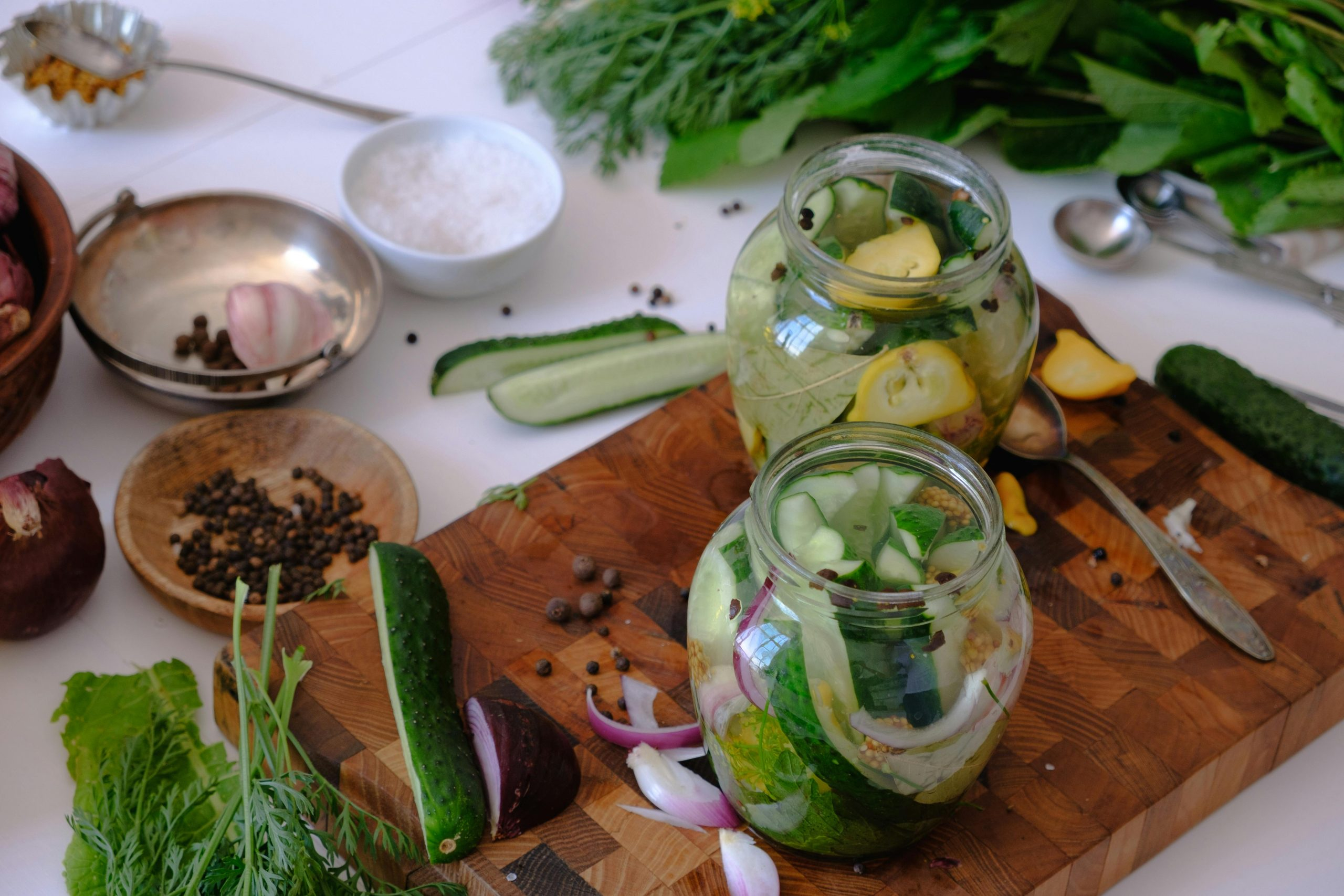How Fermentation Transforms Everyday Ingredients Into Superfoods
Fermentation has been used for centuries by cultures all over the world as a way to transform ordinary, everyday ingredients into powerful superfoods. This traditional process involves using microorganisms, such as bacteria or yeast, to break down and transform food into more easily digestible and nutrient-dense forms. From bread and cheese to yogurt and sauerkraut, fermented foods have long been a staple in many diets. But what exactly is fermentation, and how does it turn ordinary ingredients into superfoods? Let’s explore the science behind fermentation and its incredible health benefits.
The Process of Fermentation
Fermentation is a natural process that occurs when microorganisms, such as bacteria, yeast, or fungi, break down carbohydrates and convert them into simpler compounds such as alcohol, organic acids, and carbon dioxide. These microorganisms feed on the sugars and starches in the food, producing enzymes and other beneficial compounds that transform the food into a more nutritious and easily digestible form.
Fermentation begins when the food is placed in an environment that is conducive to the growth of beneficial microorganisms. This can be achieved through various techniques, such as using a starter culture or simply letting the food sit at room temperature. As the microorganisms break down the food, the acidity and flavor of the food change, resulting in the characteristic tangy and complex flavors of fermented foods.
The Health Benefits of Fermented Foods
While the process of fermentation may be centuries old, modern science has only recently begun to uncover the many health benefits of consuming fermented foods. One of the most notable benefits is the increase in nutrient availability. Fermentation breaks down the complex carbohydrates, proteins, and fats in food, making them easier for our bodies to absorb and utilize. This not only increases the nutrient density of the food but also makes it more digestible for those with sensitive digestive systems.
Another major benefit of fermentation is the increase in probiotics. Probiotics are beneficial bacteria that support our digestive and immune systems. Consuming probiotic-rich foods, such as yogurt, kefir, and kimchi, can help maintain a healthy balance of bacteria in our gut, which has been linked to improved digestion, immunity, and even mental health.
Additionally, fermentation has been shown to increase the levels of antioxidants in food. Antioxidants are compounds that help fight off free radicals, preventing damage to our cells and reducing the risk of chronic diseases like cancer and heart disease. Studies have found that fermented foods, such as pickles, sauerkraut, and miso, have significantly higher levels of antioxidants than their non-fermented counterparts.
Transforming Everyday Ingredients into Superfoods
Now that we understand the process and benefits of fermentation, let’s take a look at some of the everyday ingredients that can be transformed into superfoods through this traditional technique.
Milk
Cow’s milk is often consumed for its calcium and protein content. However, through the process of fermentation, milk is transformed into yogurt, which is not only easier to digest but also contains beneficial bacteria and enzymes. Yogurt is also a good source of probiotics, calcium, and vitamin D.
Cabbage
Cabbage may seem like a humble vegetable, but when fermented, it becomes sauerkraut, a superfood packed with vitamins C, K, and B6, as well as beneficial bacteria. Sauerkraut has been shown to have anti-inflammatory and immune-boosting properties, making it a healthy addition to any diet.
Tea
Tea is a beverage enjoyed by many, but when fermented, it becomes kombucha, a fizzy and tart drink that is loaded with probiotics, vitamins, and antioxidants. Kombucha has been linked to improved digestion, immune function, and even reduced risk of heart disease and diabetes.
In Conclusion
Fermentation is a powerful and ancient process that transforms ordinary ingredients into superfoods. Through this traditional technique, we can increase the nutrient density, probiotic content, and antioxidant levels of our food, making it easier to digest, support our immune and digestive systems, and promote overall health and wellness. So next time you enjoy a cup of yogurt or a serving of sauerkraut, remember the incredible journey these foods have gone through to become the superfoods they are today.










